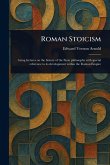De Phaedro Epicureo by Alexander Olleris delves into the Roman followers of Epicurus during the time of Caesar. Written in Latin, this historical analysis explores the philosophical underpinnings and cultural impact of Epicureanism within Roman society. The book offers insights into the life and teachings of Phaedrus Epicureus, a prominent figure in the propagation of Epicurean thought. It examines the tenets of Epicureanism as they were understood and practiced by its Roman adherents, providing valuable context for understanding the intellectual landscape of the era. This work is essential for scholars and enthusiasts interested in ancient philosophy, Roman history, and the development of Epicureanism. This work has been selected by scholars as being culturally important, and is part of the knowledge base of civilization as we know it. This work was reproduced from the original artifact, and remains as true to the original work as possible. Therefore, you will see the original copyright references, library stamps (as most of these works have been housed in our most important libraries around the world), and other notations in the work. This work is in the public domain in the United States of America, and possibly other nations. Within the United States, you may freely copy and distribute this work, as no entity (individual or corporate) has a copyright on the body of the work. As a reproduction of a historical artifact, this work may contain missing or blurred pages, poor pictures, errant marks, etc. Scholars believe, and we concur, that this work is important enough to be preserved, reproduced, and made generally available to the public. We appreciate your support of the preservation process, and thank you for being an important part of keeping this knowledge alive and relevant.
Bitte wählen Sie Ihr Anliegen aus.
Rechnungen
Retourenschein anfordern
Bestellstatus
Storno








